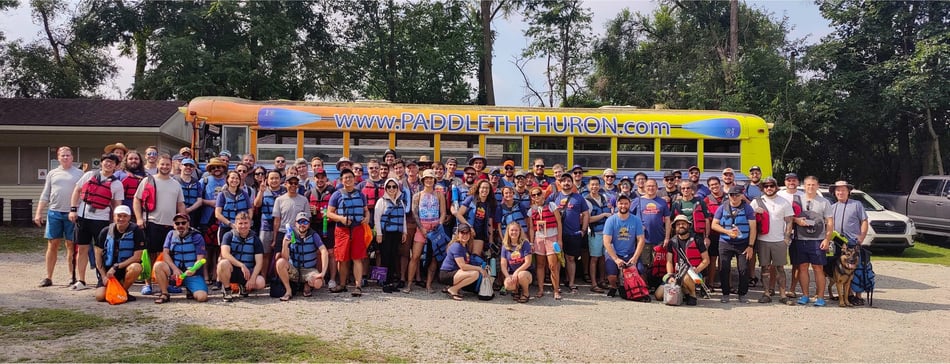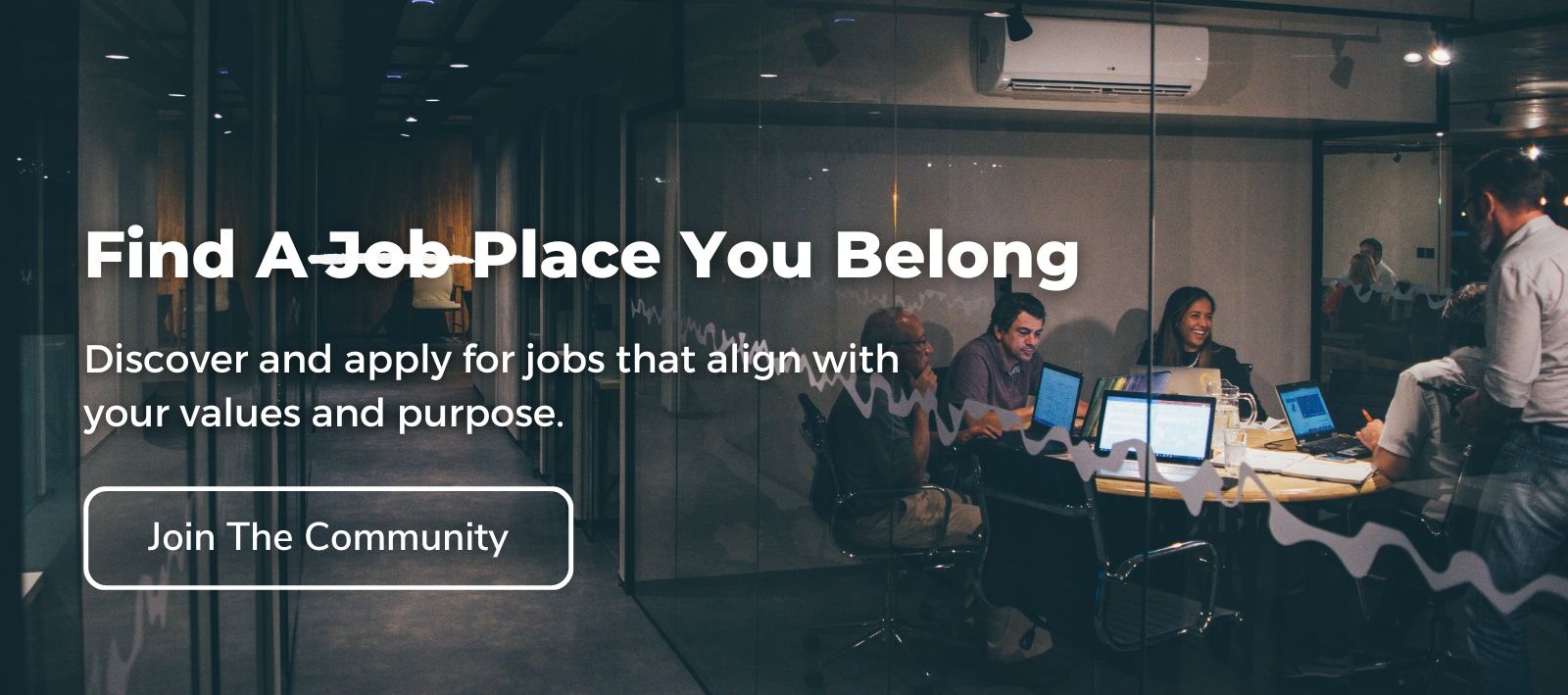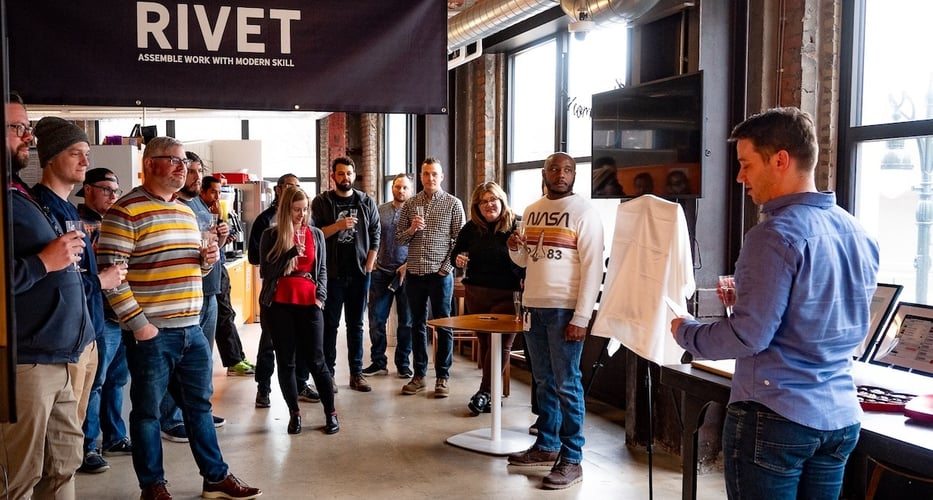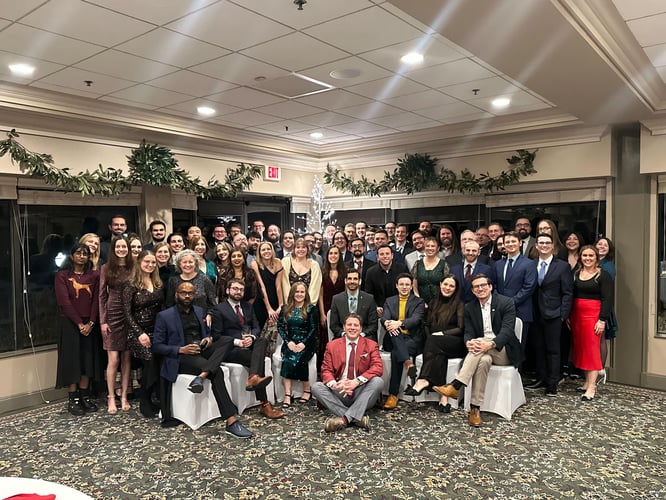While some tech companies are reneging on their promise of remote flexibility, bringing employees back into their office spaces, some are still placing their bet on remote work.
Accelerated by the pandemic, remote work has shown to be a huge advantage for companies and employees alike. Companies can hire top talent from around the country — or even the world — and employees can gain a better sense of work satisfaction with little to no commuting, flexibility, and living where they want to live. In fact, 35% of remote employees feel more productive when working fully remote. Plainly put, it’s been a win-win.
Even with a remote-first approach, where your headquarters is located matters. For some companies, their headquarters have remained the same as their pre-remote location. But for companies that are deciding on a headquarters location as they start a remote-first company, choosing the right place can make a difference. Having a physical location for administrative or occasional in-person meetings can play a crucial role in several ways.

Your headquarters matters — yes, even a remote one
There are several reasons why you should consider where you set up shop, even for a remote-first company. Here are just a few reasons:
- Networking and talent acquisition
- Local industry
- Operational efficiency and cost of business
- Cultural alignment
- And more
In a remote-first company, the choice of headquarters is more about strategic advantages rather than centralized operations. The impact varies based on the company's specific goals, culture, and the nature of its industry. It’s important to carefully consider and understand your company's needs and objectives as you choose the right place.
Why Nokia Deepfield makes the case for Ann Arbor
Many companies in Ann Arbor, whether they have deep roots here or are just getting started, have found the city to be an extraordinary place to grow their remote-first business.
Nokia Deepfield is one of those companies.
.jpg?width=1920&height=1080&name=deepfield%20dev%20days%20(1).jpg)
Image source: Ann Arbor SPARK, taken by Melanie Reyes Photography
Founded in 2011 in Ann Arbor by computer science alums from the University of Michigan, Deepfield is now a dedicated business unit of Nokia. Acquired by Nokia in 2017, as the company made a big push into network infrastructure, Deepfield has become a part of the IP networking organization in Nokia. As such, Nokia Deepfield has expanded into a global organization, focused on internet network analytics and DDoS (Distributed Denial of Service) security and providing service providers worldwide with detailed visibility into their networks, services and subscribers, as well as their security.
The Nokia Deepfield team, which is remote-first but still largely headquartered in Ann Arbor, has found tons of success with their work model.
The Ann Arbor Advantage
One of the things that works for Ann Arbor as a headquarters for a remote-first company is its rich history in the internet and tech industry. The tech scene has been growing over the last decade as more and more startups get founded and find success. There are a few factors that have contributed to its growth.
First of all, the University of Michigan has been a breeding ground for top engineering talent who go on to build or work at awesome tech companies. And as the tech scene grows, so does its talent community.
Additionally, there are tech events happening all the time. Between local events from Ann Arbor SPARK, including a2Tech360, an annual series of tech-focused events, A2 New Tech, and national-reaching events like Michigan Tech Week, Ann Arbor is a great place to meet people, learn new things, and find fantastic opportunities in the tech industry.
While Ann Arbor might be more expensive to live in compared to other cities in Michigan, it’s considerably affordable when compared to other tech hubs like the Bay Area, New York, Austin or Denver. For example, in this report from Ann Arbor SPARK, recent data shows that median home values in Ann Arbor are about 4.7 times the median income, but in Austin, home values are about 6.7 times the median income. Your dollars still go further in Ann Arbor.
“Being remote first, you get the culture and the events, but you don’t have to pay big tech hub prices,” says Brennan Crispin, a local Ann Arborite who has been a software engineer on the Deepfield development team for over 5 years.
Prior to the COVID-19 pandemic, the team had a handful of remote employees, but about 95% of the engineering team was located in Ann Arbor. Their office still exists for those who want to go in regularly. But now the office remains the perfect spot for larger gatherings, team meetings, and a place for people to work when remote employees come to town.
.jpg?width=1920&height=1080&name=deepfield%20dev%20days%20(2).jpg)
Which is something they like to do regularly.
Matina Kallivoka, who works on the Nokia Deepfield team in Greece has been with the team for about a year, working remotely and getting to spend some time with the team in Ann Arbor.
“When the team started in Greece, we came to Ann Arbor for two weeks to do onboarding and connecting with the team,” Matina says. “It was such a great experience, and the onboarding was so organized and well done.”
Now that there’s a larger presence in Greece, onboarding is done for them there, but that doesn’t keep the Nokia Deepfield team from getting together in Ann Arbor.
Dev Days in Ann Arbor
While remaining remote, the Nokia Deepfield team is still highly collaborative and values time together in-person. Twice a year, the team hosts their annual “Dev Days,” a time when the team of about 90 people can get together, foster connectivity, knowledge sharing, and team bonding, even across different time zones. This year, Nokia Deepfield’s Dev Days were held in August.
“Before everyone was remote, there were these social team building activities, and then DevDays were built around those pre existing events,” says Brennan. For example, the team regularly gets involved in Tech Trek, an a2Tech360 event.
.jpg?width=1920&height=1080&name=deepfield%20dev%20days%20(3).jpg)
During Dev Days, which last about a week, the team facilitates face-to-face interactions, product presentations, technical discussions, and team-building activities. The downtown office hosts trainings, meetings, happy hours, and game nights. It’s a great opportunity to get face-to-face training as well as getting to know other employees and leadership, including Dr. Craig Labovitz, the Chief Technology Officer and co-founder of Deepfield before it was acquired by Nokia.
Not only do these events foster a deeper understanding of the company's goals, but they also allow employees to experience the local culture, fostering a sense of community and belonging. The team spends a lot of time experiencing the local scene: staying downtown, walking to the office, eating at local restaurants. These are things that the Ann Arbor-based employees enjoy, too.
“As a foreigner, I love experiencing the local culture in Ann Arbor,” says Matina. “We do Whirlyball and go kayaking and eat at great restaurants.”
.jpg?width=1920&height=1080&name=deepfield%20dev%20days%20(4).jpg)
Matina has been to Ann Arbor three times now and says it gets better every time. Yes, part of that has to do with the weather and the time of year she visits, but each time she notices something special about the city.
“The city is so welcoming and very kind. People are really happy here and like to spend time together.”
For more information about building a remote company in Ann Arbor, check out Ann Arbor SPARK’s resources. And if you’re looking for a remote-first job in a great, emerging tech hub, check out Nokia Deepfield’s open roles.







.png?width=50&name=Erin%20Gregory%20(1).png)
